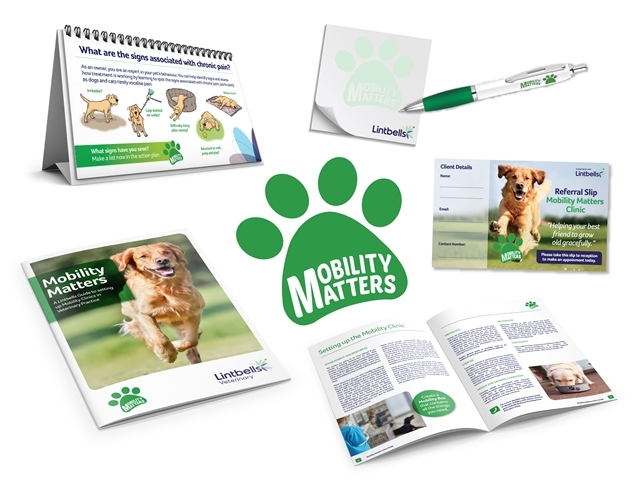
Mobility Matters Material
Veterinary Nurses Have An Important Role To Play In Supporting Patient Mobility, Says Lintbells
Premium natural supplements company, Lintbells, says it has noticed an upturn in the numbers of veterinary practices offering veterinary nurse-led mobility clinics since it launched its Mobility Matters initiative last year. The programme provides useful resources and a framework for introducing mobility clinics. Practices are putting Mobility Matters into action and using it to enable veterinary nurses to identify opportunities to improve mobility and provide support for pets.
Lintbells Product Marketing Executive Gemma Cunningham says the company is delighted to support practices to use the skills of their nurses more effectively so patients can retain or improve their mobility.
Feedback from Lintbells field based personnel and online searches show that practices are focusing on mobility in pets through nurse-led clinics in several ways. Some nurses are supporting patients in the area of assessment – carrying out lifestyle and mobility questionnaires, pain scores and physical checks of mobility. Other nurses are providing support for patients with a diagnosis and/ or giving advice about how to keep pets mobile and active. This can include providing dietary advice, ensuring the pet is at ideal weight and recommending supplements. Home care might also include developing exercise plans and discussing the use of mobility aids, or hydrotherapy.
Checking compliance with veterinary recommendations is another area where RVNs can ensure the patient’s needs are being met. In some cases the mobility clinic includes techniques for pain management, such as the use of hot-cold therapy, massage, rehabilitation techniques and help to recognise the signs of pain so that flare-ups or improvements can be detected and appropriate action taken.
Gemma says that it’s an important step forwards in mobility management, “It’s widely accepted that a multimodal approach is the best way to support mobility in pets. Time pressures in busy practices mean that it can be difficult to provide this level of support and to fully utilise the whole team in delivering gold standard patient care. Nurse-led clinics provide a great way to improve the quality of life of patients and a route to potentially extend their lives as a result of better management of their condition. It’s great to see practices really getting behind this idea and using their nurses so positively.”
More from Lintbells

 8 years ago
8 years ago  1741 views
1741 views